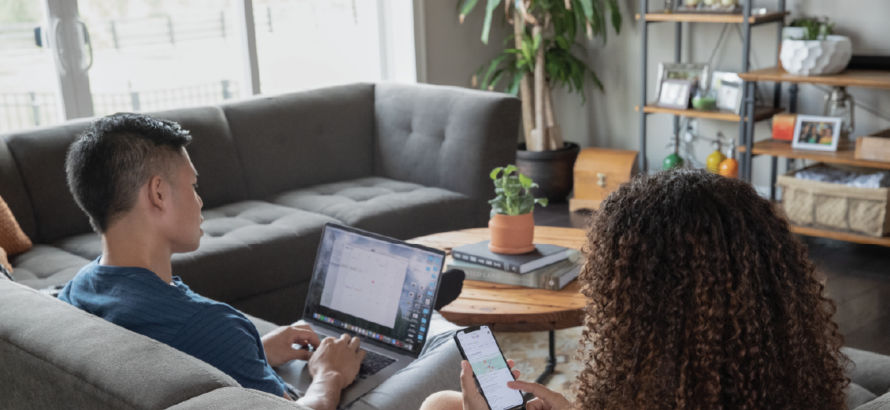
During a global pandemic, everything can feel exponentially more stressful and difficult. With millions of Americans filing for unemployment since the beginning of March, many of us are forced to deal with the anxiety of finances on top of everything else we have to worry about.
Here are 4 simple things you can do to help relieve some of the stress and burden of your finances during the coronavirus pandemic:
1. Pay your critical expenses
Ditch the guilt. Life happens. If you have to put your debt payment plan on hold, do it. The most important thing right now is to pay your critical expenses, like putting a roof over your head and food on the table for your family.
2. Use the extra money saved to pay down debt
If you’re able to meet all of your and your family’s necessities, then you can start to look at your expenses. Some Americans are actually saving more money than before the pandemic due to lowered spending toward travel and entertainment. One option is to use this extra money as an opportunity to pay down debt balances, starting with bad debt first. While you’re there, think about any non-essential spending you can cut. Remember, life looks a little different now than it did a few months ago, so it’s a good time to re-evaluate needs.
3. Ask for a lower payment plan
Many companies have special programs to help people right now. Contact the companies you owe money to and try to work out a new payment plan with lower payments or delayed due dates, and find out if your state or local government offers programs that will allow you to hold off on paying some bills right now. Make sure to get any changes in writing.
4. Explore new avenues for income
If you’ve lost your job or are worried you could get laid off soon, consider some alternate ways to find income. Consider a side job, sell some of your assets, and explore how much unemployment benefits would cover and how long they would last.
Most importantly, don’t listen to the fear- and guilt-mongering finance gurus. Is it important to pay off your debt and save for the future? Absolutely. But in times of crisis, it is absolutely ok to take care of your family and prioritize paying bills and necessities — even if this means hitting pause on your debt payoff plan.
Financial professionals can help you develop a personalized plan to get out (and stay out) of debt at a pace that fits your life and your situation — even if that situation is a global pandemic. For more tips on debt repayment, find out whether it’s better to pay off debt or save.
NFM-19948AO
Sources:
https://www.cnbc.com/2020/05/07/before-the-pandemic-americans-prioritized-paying-down-debt.html
https://www.consumer.ftc.gov/blog/2020/04/managing-your-bills-during-covid-19



